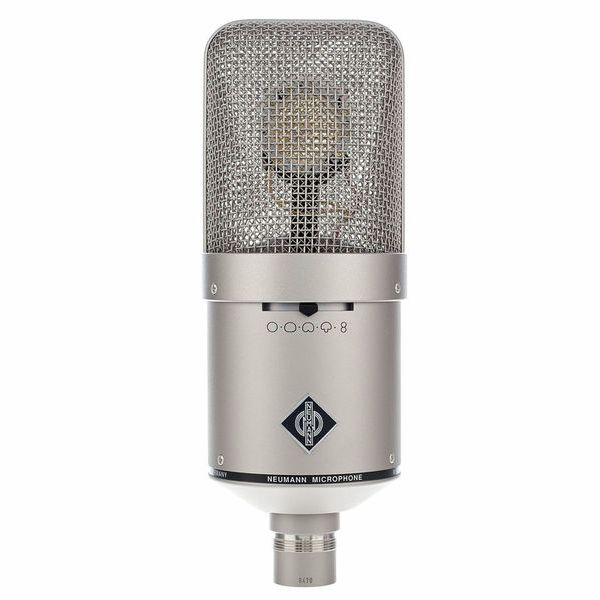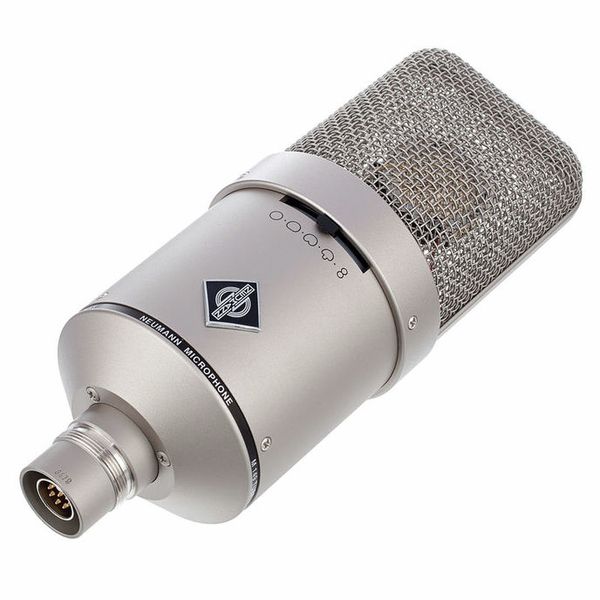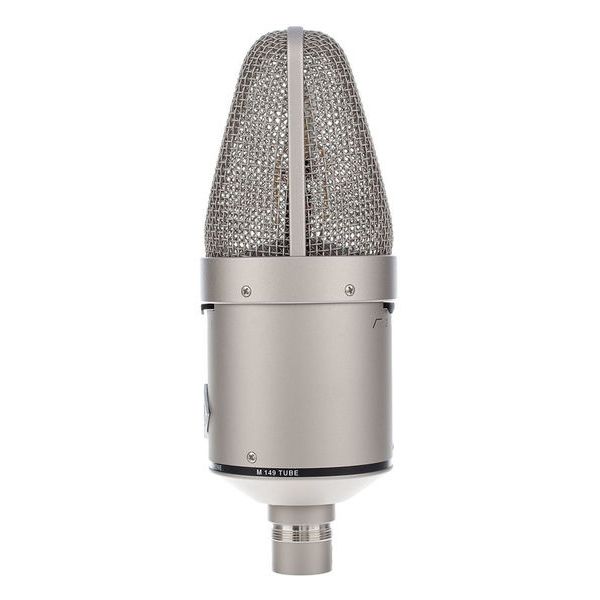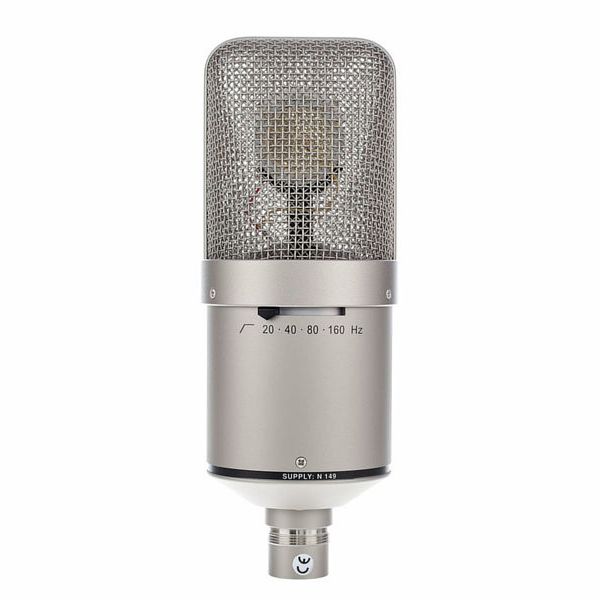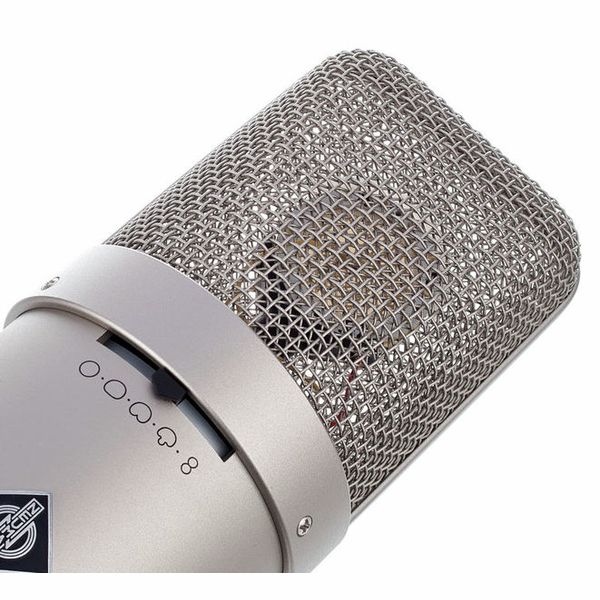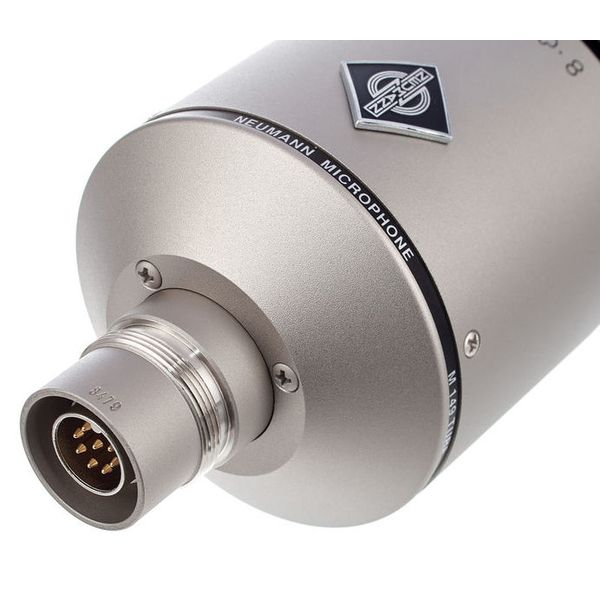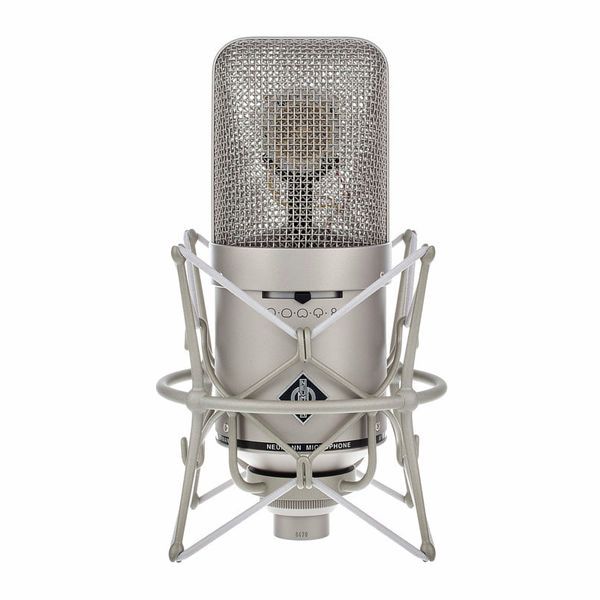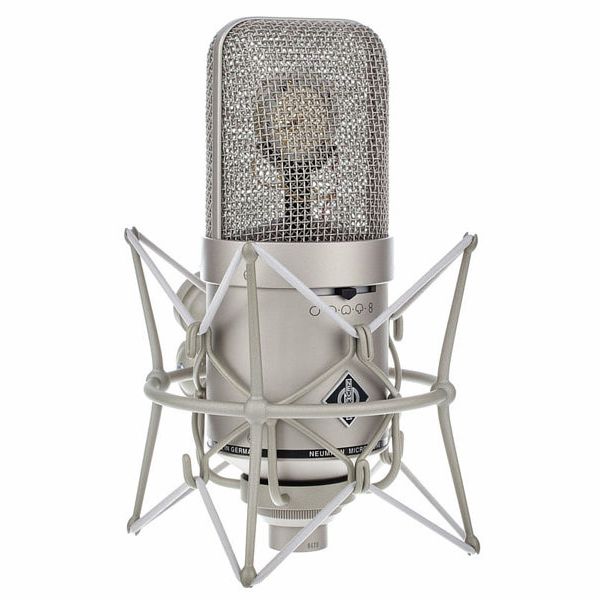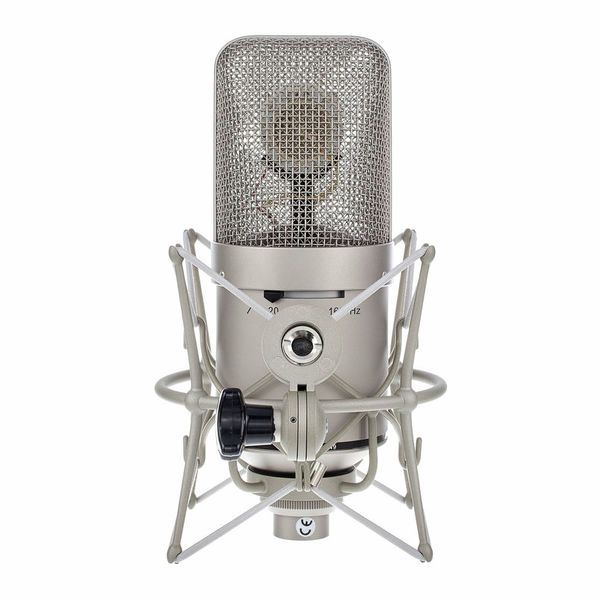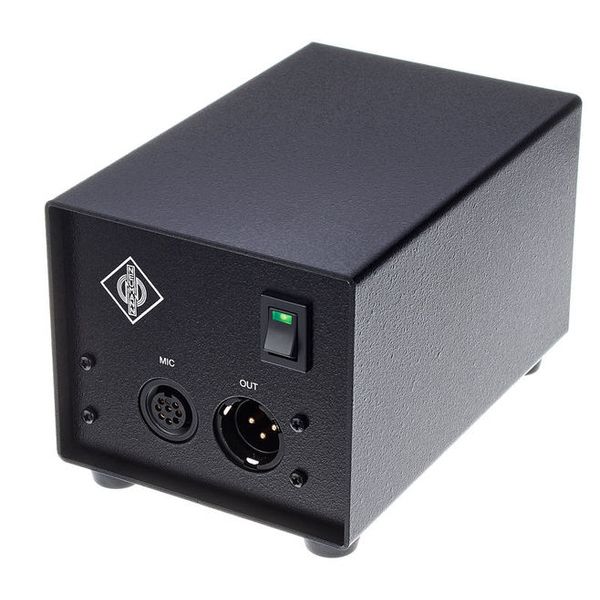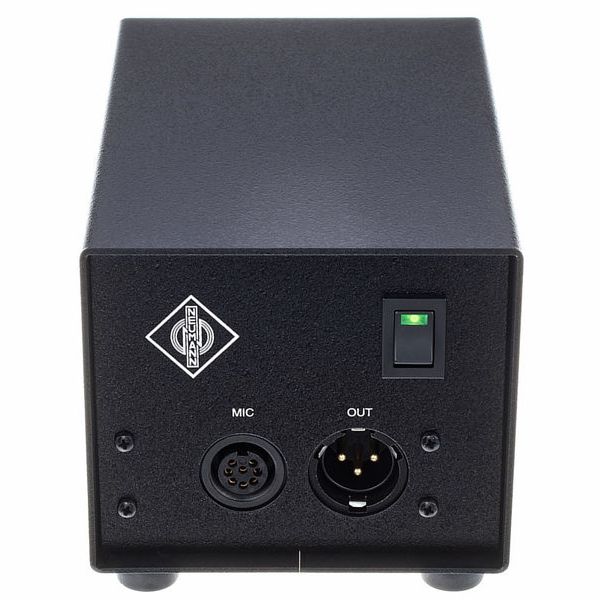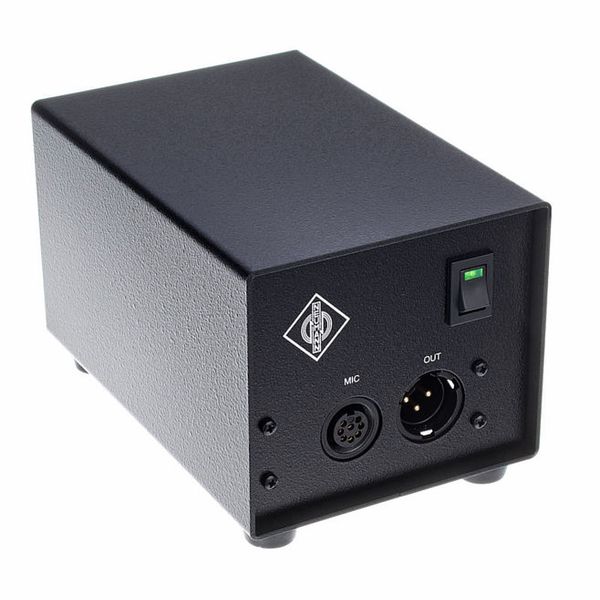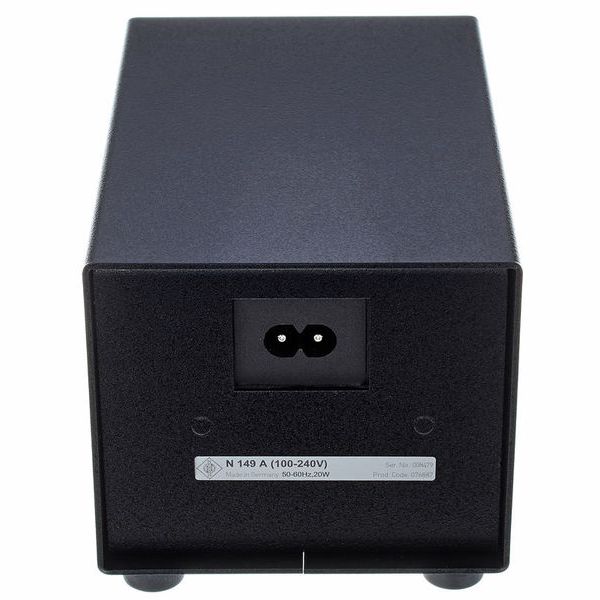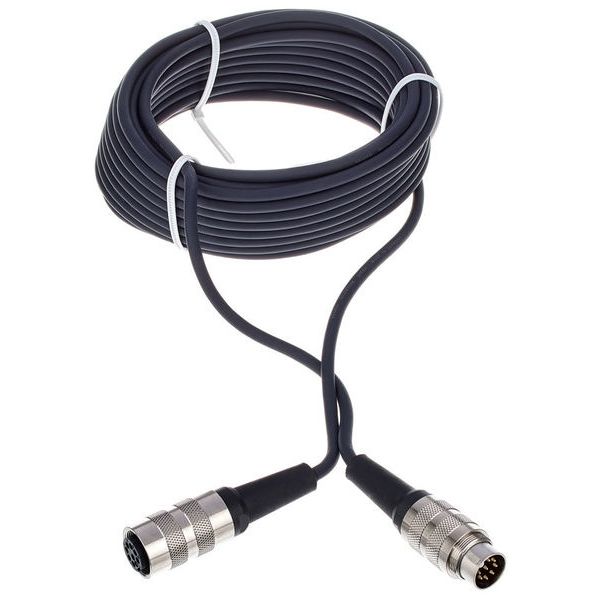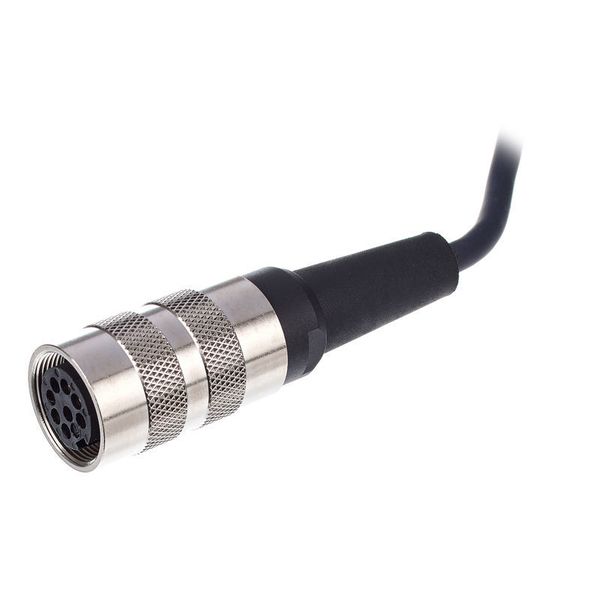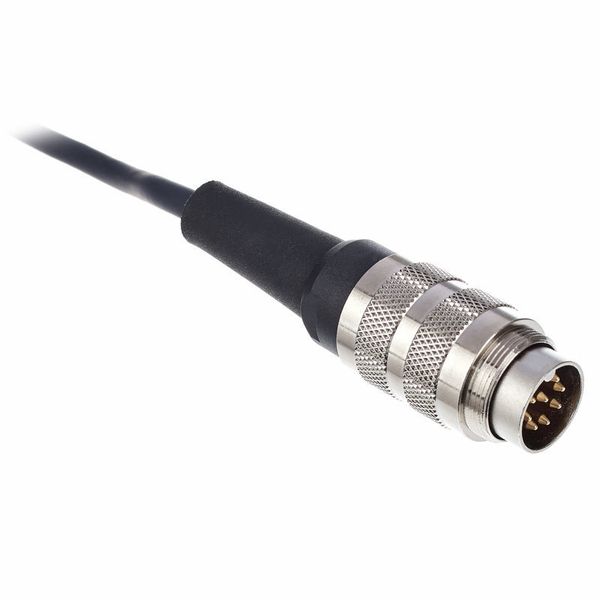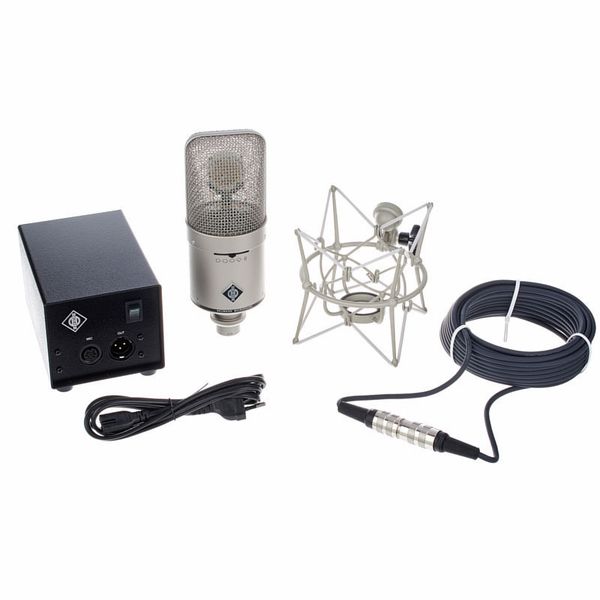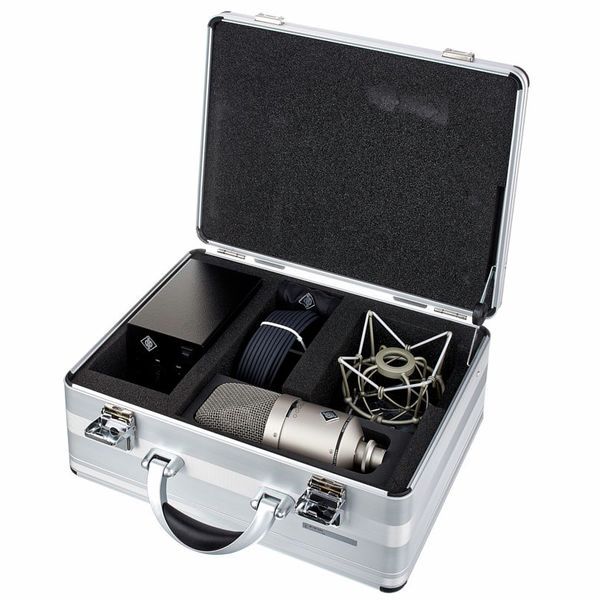Tube Microphone
With nine different polar patterns, the M 149 Tube can be adapted to very different acoustic recording situations. Like its ancestors, it is particularly suitable for speech and vocals. This is due not only to its capsule, but also to the particularly low equivalent noise level of its modern circuitry.
The M 149 Tube is used sideways. Its front is marked by the company label and the polar pattern switch. Below the capsule, a dome ensures that the sound from the upper half-space is dispersed so that there is no annoying interference with the direct sound components. To protect against structure-borne sound transmission, the capsule is elastically mounted. The capsule is surrounded by the large microphone head of the old M 49, but it is now acoustically more open and thus has a more neutral sound.
There are nine characteristics to choose from: Omni, wide cardioid, cardioid, hypercardioid and figure-of-eight, each with an intermediate position.
Unlike other tube microphones, the M 149 Tube combines a specially selected tube (triode) with the latest circuit technology. The objective of the development was to use the special transmission characteristics of a tube and to bring the amplified capsule signal to the microphone output in a controlled, undistorted and feedback-free manner. For this reason, the output transformer usually used with tube microphones is not used. Instead, a built-in amplifier especially suited for audio signals with very low distortion (THD < 0.002 % at ± 10 V), very low noise voltage and high current capacity is used to drive the different output loads. Thus, the tube is completely decoupled from the microphone output and becomes usable for input signal conditioning with its typical characteristic up to very high levels. Due to the high output power capacity, cable lengths of up to a total of 300 m are permitted for the M 149 Tube without having to accept any loss in signal quality. The tube amplifies the capsule voltage by approx. 10 dB to completely exclude residual influences of the downstream electronics. Nevertheless, a very high dynamic range is managed, since a peak output power of ± 10V at 20 mA is available. The ideal operating point (anode power, heater voltage) of the tube is stabilised during the entire lifetime. Voltage drops occurring in the microphone cable are detected and compensated by a sensor line. The heating of the tube is carried out gently by a regressive power limiter in order to ensure long service life.
The slide switch on the back operates a high-pass filter whose cut-off frequency (3 dB) can be selected in half-octave steps between 20 Hz and 160 Hz. This way, interferences from air-conditioning systems or impact sound can be faded out in a very targeted way. In addition, the volume of a voice, for example, can be measured flexibly by using the proximity effect.
The M 149 Tube is powered by its special N 149 power supply unit via an 8-core cable. At its output, the microphone signal is on a 3-pin XLR connector. The microphone is delivered in an aluminium case as a set together with the 8-pin microphone cable, the power supply unit N 149 and the elastic suspension EA 170.
- Acoustic mode of operation Pressure gradient transducer
- Polar patterns omnidirectional, wide cardioid, cardioid, hypercardioid, figure-of-eight and one intermediate position each
- Frequency response: 20 Hz...20 kHz
- Field transfer factor at 1 kHz at 1 kOhm: 34/47/62 mV/Pa (omni,/cardioid/eight)
- Nominal impedance: 50 Ohm
- Nominal load impedance: 1000 Ohm
- Equivalent noise level CCIR468-3: 28/25/23 dB (omni,/cardioid/eight)
- Equivalent noise level DIN/IEC651: 16/13/11 dB-A
- Equivalent noise level CCIR 468-3: 66/69/71 dB
- Equivalent noise level DIN/IEC651: 78/81/83 dB
- Maximum sound pressure level (tube characteristic) for K < 0.5% 120 dB / for K < 5% 136 dB
- Maximum output voltage 18 dBu
- Dynamic range of amplifier DIN/IEC651 for K < 0.5% (K < 5%) : 101 (121) dB
- Power supply unit N 149
- Weight 730 g
- Diameter 70 mm Length 201 mm
- Incl. aluminium case, 8-pole microphone cable, power supply N 149 A, elastic suspension EA 170, dust bag



